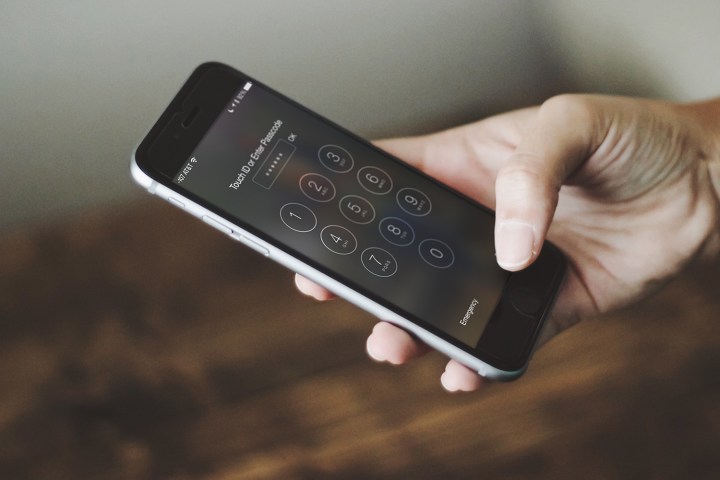
Your options don’t end there. We’ve gathered together a list of some other iPhone security apps that you might want to try. If you have an Android smartphone, then check out our top Android security apps.
1Password

Remembering all your passwords for different accounts is one of the major challenges of modern life. We know complex passwords are more secure and that we should never re-use the same password, but how do we keep track of them all? This app helps you generate and manage your passwords, keeping them locked in a securely encrypted vault. All you need is your master password. The first 30 days are free, then it costs $4 per month for a single account, or you can opt for a family account at $7 per month, which makes sharing passwords nice and easy.
Signal

This free messaging app allows you to send text messages and files, or make video and voice calls, in complete privacy. It also supports group chat. Everything you send is end-to-end encrypted, so there’s no way to intercept or see what you’re sending. That’s far from unique, but what sets Signal apart is the fact that it doesn’t even store metadata on its servers, the code is open source, and it’s funded by grants and donations. There’s no incentive for the developers to store the data that other apps may collect for advertising purposes.
Lookout

You’ll find a wide range of different features in this popular iPhone security app. The free, basic version monitors apps for suspicious activity, helps you locate your iPhone or paired Apple Watch, and has a built-in backup service. You’ll also be alerted to vulnerabilities and data breaches, with advice on what to do. If you’re willing to splash out $10 per month for the premium version, then you also get identity theft protection and insurance to alert you to possible fraudulent activity and to help you deal with it quickly.
Avira Vault

If you want to hide photos on your iPhone, this security app is a good option with a lot of extra features. You can hide selected photos and videos, as well as notes, credit card details, and passwords. It also boosts your browser security by filtering out malware and phishing attacks. It’s free with some limitations on storage space, but you can pay $4 for the pro version for unlimited storage and the ability to set up a decoy account to satisfy suspicious minds and keep your real stash private.
ProtonMail

Keeping your emails strictly private is easy with this app. It supports PGP end-to-end encryption, so only the sender and recipient can read email messages sent with ProtonMail. It’s every bit as clean and easy to use as some of the other best iOS email apps, and it’s completely free. Developed by CERN scientists after a big donation campaign and hosted in Switzerland, this is an app you can trust. It also allows you to set self-destruct timers on messages and send password-protected, encrypted messages to normal email addresses.


